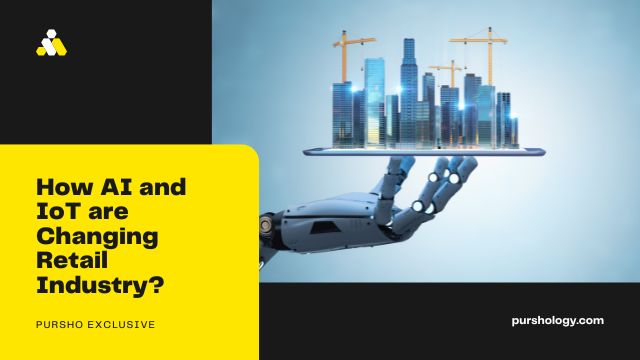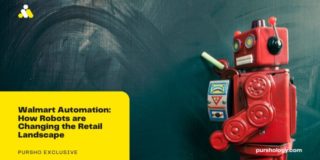As an inherent component of the retail ecosystem, doesn’t data analytics give adequate information for retailers to enable improved inventory management and in-store experience? It has been observed that an increasing number of retail shops are incorporating AI and Machine learning in their physical locations. But, when data analytics is already in place, why do we need AI?
Let’s start with an overview of what Data Analytics and Artificial Intelligence Solutions entail. The data is evaluated in Data Analytics to reach conclusions and impact decision-making. In AI, computer programs and systems are constructed that mimic human reasoning and intelligence features, resulting in a system that is intelligent enough to make decisions in the same way that a human would.
While data analytics may be sufficient for small and medium-sized stores to decrease waste, display products, and offer a better customer experience, Artificial Intelligence Solutions can assist in identifying forthcoming trends and visualizing a predictive plan for the future, independent of the company’s size. Thanks to its collaboration with the Internet of Things, AI will likely help the retail industry utilize digitization to provide more efficient, customized, just-in-time products and services.
Artificial intelligence is a buzzword in numerous businesses, but many people aren’t sure. When we say artificial intelligence, we’re referring to a variety of technologies, such as machine learning and predictive analytics, that can collect, process, and analyze massive amounts of data and use that data to predict, forecast, inform, and assist retailers in making accurate, data-driven business decisions.
These technologies can even function independently, converting raw data collected from IoT and other sources into meaningful insights utilizing advanced Artificial Intelligence Solutions. AI also uses behavioral analytics and consumer intelligence in retail to gain important insights into distinct market demographics and improve a variety of customer service touchpoints.
The dynamic retail industry of today is based on a new covenant of data-driven retail experiences and higher customer expectations. On the other hand, retailers face the difficult task of providing a meaningful and valuable individualized buying experience. When digital and physical purchasing channels merge, retailers who can develop their retail channels will set themselves apart as industry leaders.
So, how does that appear in practice? Here are some examples of how artificial intelligence is transforming the retail business.
Store Inventory Management
Inventory may be tracked in real-time, reducing the chances of things running out of stock. Predictive analysis will assist retailers in stocking up on products that are in high demand by customers while also reducing the number of negative side effects from the stores. Inventory planning, tracking, stocking, and forecasting will all benefit from data insights.
Supply and Logistics
AI can assist in automating and optimizing the entire logistics and supply chain using data provided by AI. When items approach a pre-determined lower limit, an ideal supply chain management system will automatically arrange them. It will be able to control demand spikes caused by unforeseen circumstances successfully.
Personalized Shopping Experience
Retailers may leverage data obtained through AI and IoT to modify ad promos, make product recommendations, create digital signage material, and more. AI may be utilized to operate chatbots that replicate the interaction between sales personnel and customers and offer unique suggestions to deliver a personalized approach to every shopper. The technology may also detect customers’ tones, which allows it to determine the best method to respond to their comments, questions, and complaints.
Price Optimization
It’s impossible to create an ideal shop environment if the pricing isn’t competitive. Data acquired from AI systems and a connected network of devices could aid in determining when to reduce commodity costs and when to raise them based on demand and availability.
Bottom Line
Artificial Intelligence Solutions and the Internet of Things (IoT) are two new technologies that some retail behemoths have embraced. Putting infrastructure in place to support AI in retail can be daunting, but it doesn’t have to be. You will be supported and led during the process and after deployment if you work with a technology solutions partner. Contact one of our specialists to discover more about Teksun Solutions for the retail industry.







